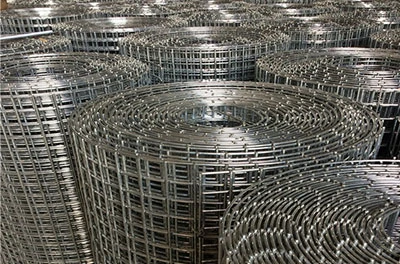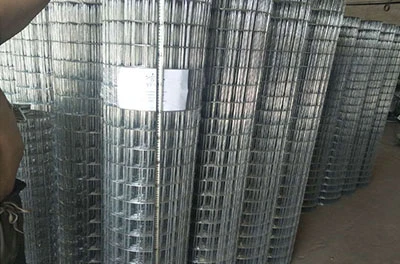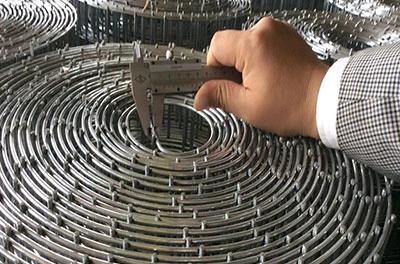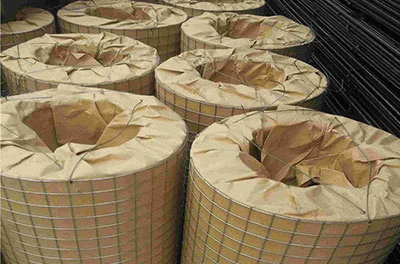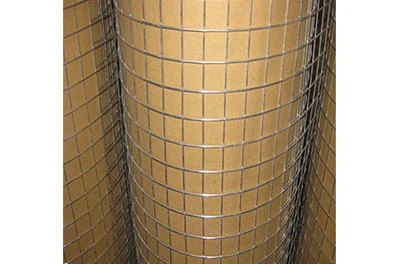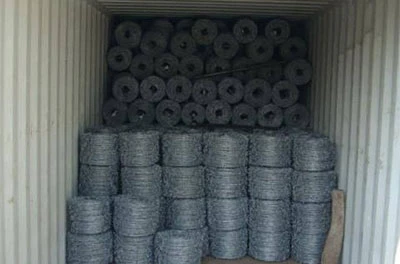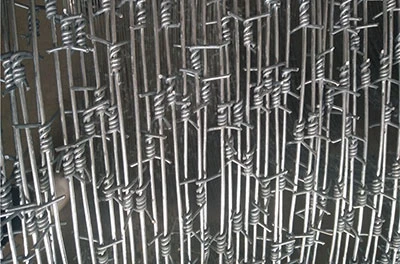Th8 . 11, 2025 13:20 Back to list
Fixed Knot Fence: High Tensile, Durable & Secure Fencing
Understanding Fixed Knot Fencing: Key Features and Industry Trends
In the realm of agricultural and wildlife management infrastructure, the demand for durable, reliable, and cost-effective fencing solutions is paramount. Among the various options, fixed knot fence stands out as a superior choice, particularly for demanding applications like livestock containment and exclusion of wildlife. This advanced fencing system is engineered to provide exceptional strength and longevity, making it an indispensable asset for farms, ranches, and conservation areas worldwide. The fixed knot design, unlike traditional hinge joint or woven wire fences, incorporates a non-slip, self-locking knot that firmly grips the vertical and horizontal wires, preventing slippage and maintaining consistent mesh spacing. This inherent rigidity contributes significantly to its resistance against impacts from large animals and environmental stresses, ensuring a lower total cost of ownership over its extended service life.
Recent industry trends indicate a growing preference for high-tensile wire fencing due to its enhanced strength-to-weight ratio and reduced need for maintenance. The increasing focus on animal welfare and efficient land management further propels the adoption of robust solutions like fixed knot fencing. Farmers and landowners are actively seeking systems that minimize animal injury, deter predator incursions, and offer long-term performance without constant repairs. Furthermore, with the rising awareness of sustainable practices, the emphasis is on products that offer extended lifespans, thereby reducing material consumption and waste. This alignment with durability and low maintenance positions fixed knot solutions as a future-proof investment in agricultural infrastructure, reflecting a broader shift towards more resilient and economically viable fencing technologies.
Manufacturing Excellence: The Fixed Knot Process
The superior performance of fixed knot fence is a direct result of its sophisticated manufacturing process, which begins with the careful selection of high-grade raw materials. Typically, high-tensile steel wire, often with a carbon content optimized for strength and ductility, serves as the foundation. This wire undergoes a rigorous galvanization process, involving a hot-dip zinc coating, to provide exceptional corrosion resistance, crucial for outdoor applications. The thickness and uniformity of this zinc layer are meticulously checked against international standards such as ASTM A116 or equivalent ISO specifications to ensure maximum durability against rust and weathering. This initial material preparation is critical, as it dictates the fence's resilience and service life in harsh environmental conditions, ranging from extreme temperatures to high humidity and exposure to corrosive agricultural chemicals.
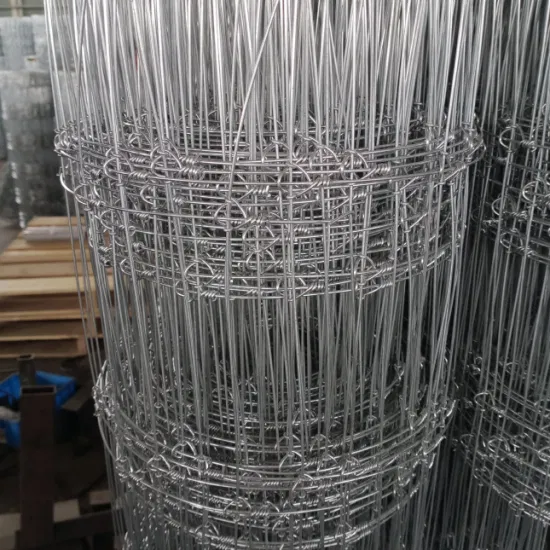
Following galvanization, the wires are fed into specialized weaving machines where the defining "fixed knot" is formed. Unlike traditional methods where separate knot wires are wrapped, the fixed knot is an integral part of the vertical stay wire, tightly wrapping around the horizontal line wire. This unique design creates a robust, non-slip joint that prevents vertical wires from sliding, even under significant tension or impact. The manufacturing process adheres to stringent quality control protocols, including continuous monitoring of wire tension, knot formation consistency, and mesh spacing accuracy. Each roll of fixed knot fencing undergoes post-production inspection, verifying compliance with dimensional tolerances, coating integrity, and overall structural integrity. This meticulous approach ensures that every product reaching the market meets the highest industry standards, providing end-users with a reliable, long-lasting solution that minimizes maintenance and replacement costs throughout its substantial service life, typically exceeding 30 years in favorable conditions.
Technical Specifications and Performance Metrics
The efficacy of fixed knot deer fence and other variants is underpinned by precise technical specifications that dictate its strength, durability, and suitability for various applications. Key parameters include wire gauge (diameter), tensile strength, zinc coating weight, and mesh configuration. Wire gauge, expressed in AWG (American Wire Gauge) or millimeters, directly impacts the fence's robustness; typically, heavier gauges (e.g., 12.5 gauge for line wires) denote greater strength. Tensile strength, measured in PSI or MPa, quantifies the wire's resistance to breaking under tension, with high-tensile wires offering superior elasticity and impact resistance, allowing for longer post spacing and reduced installation costs.
Mesh configuration, represented by terms like 8x40x6, indicates the number of horizontal wires (8), the total height in inches (40), and the spacing between vertical stay wires in inches (6). For a 6 ft fixed knot fence, the height would typically be 72 inches. The zinc coating weight (e.g., Class 1, Class 3) determines the level of corrosion protection and, consequently, the fence's service life. Class 3 coatings offer significantly extended protection compared to Class 1, making them ideal for challenging environments. Below is a detailed table summarizing common technical specifications for fixed knot fencing, providing a clear reference for purchasers to match product features with their specific project requirements.
| Parameter | Description | Common Range/Value | Impact on Performance |
|---|---|---|---|
| Wire Gauge (Line Wires) | Diameter of horizontal and vertical wires. | 12.5 gauge (2.5mm), 14 gauge (2.0mm) | Larger gauge = greater strength and impact resistance. |
| Tensile Strength | Wire's resistance to breaking under tension. | 180,000 - 220,000 PSI (1240-1517 MPa) for high tensile | Higher tensile allows for longer post spacing, better impact absorption. |
| Zinc Coating Class | Amount of zinc applied for corrosion protection. | Class 1 (light), Class 3 (heavy) | Class 3 offers 2-3 times longer service life against rust. |
| Mesh Spacing (Vertical) | Distance between vertical stay wires. | 6 inches, 12 inches | Closer spacing increases rigidity, prevents animal passage. |
| Fence Height | Overall height of the fence roll. | 48 inches, 60 inches, 72 inches (6 ft), 96 inches | Determines suitability for specific animal containment (e.g., deer require taller fences). |
| Roll Length | Total length of wire fence per roll. | 100 ft, 330 ft, 660 ft | Longer rolls reduce splices and installation time. |
| Knots per Wire | Number of fixed knots per vertical stay. | Matches number of horizontal wires | Indicates structural integrity and rigidity of the mesh. |
These specifications are crucial for informed purchasing decisions, allowing customers to select a high tensile fixed knot wire fencing for cattle, deer, or other specific livestock, ensuring optimal performance and cost-effectiveness over the fence's prolonged lifespan. The combination of high-tensile wire and the unique fixed knot ensures that the fence remains taut and resilient, even under varying temperature conditions or animal pressure.
Diverse Applications: Where Fixed Knot Fences Excel
The robust design and superior strength of fixed knot fencing make it an exceptionally versatile solution for a broad spectrum of agricultural, wildlife, and security applications. Its primary use case is in large-scale livestock containment, particularly for cattle, sheep, goats, and horses, where its high tensile strength and rigid structure effectively prevent breakouts and minimize the risk of injury to animals. The ability to maintain consistent tension across long spans with fewer posts significantly reduces installation time and material costs compared to traditional woven wire or barbed wire alternatives. This characteristic is especially beneficial for vast properties where efficient perimeter control is paramount for operational efficiency and animal safety.
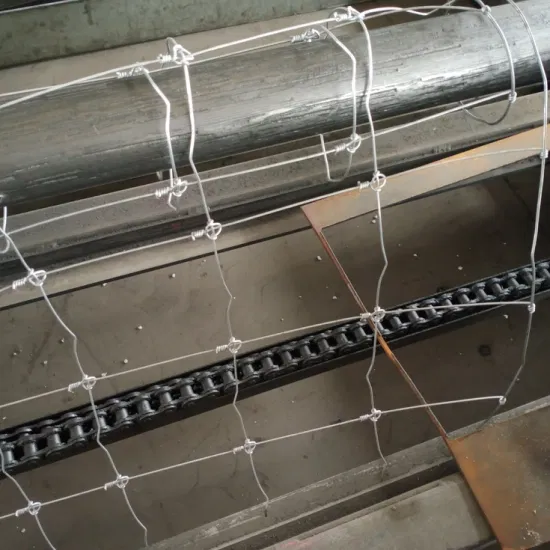
Beyond conventional farming, fixed knot fences are highly effective as fixed knot deer fence solutions. With heights often reaching 6 ft (72 inches) or even 8 ft, these fences are specifically designed to deter deer and other wildlife from entering cultivated areas, protecting crops, orchards, and vineyards from significant damage. The tight mesh configurations at the bottom prevent smaller animals from passing through, while the overall rigidity and height pose a formidable barrier for larger wildlife. Moreover, the inherent resistance to stretching and sagging means these fences remain effective over time, requiring minimal maintenance even in challenging terrains or areas with high wildlife pressure. This adaptability underscores its value across diverse ecological and agricultural landscapes, providing essential protection and control.
Unrivaled Advantages: Why Choose Fixed Knot
The adoption of fixed knot fence offers a compelling suite of advantages that translate into tangible benefits for property owners and agricultural enterprises. Foremost among these is its exceptional durability and longevity. Constructed from high-tensile steel wire with a robust fixed knot, these fences are inherently stronger and more resistant to impacts than traditional woven wire or hinge joint fences. This structural integrity minimizes sagging, stretching, and damage from livestock pressure or environmental factors like heavy snow loads. The Class 3 galvanization, applied through a hot-dip process, ensures superior corrosion resistance, allowing the fence to withstand harsh weather conditions, UV exposure, and abrasive elements for decades, significantly reducing the need for costly repairs and replacements.

Another significant advantage is the superior animal containment and protection it provides. The non-slip fixed knots maintain consistent mesh spacing, preventing animals from pushing through or getting tangled, thereby reducing injury risks and ensuring effective livestock management. For wildlife exclusion, especially as a fixed knot deer fence, its robust construction and potential for greater height present a formidable barrier, protecting crops and property from wildlife damage. Furthermore, the installation efficiency of fixed knot systems is a notable economic benefit. Due to the inherent rigidity of the wire and the fixed knot design, fewer fence posts are required per linear foot compared to other fencing types. This translates to reduced material costs for posts, less labor during installation, and quicker project completion, offering substantial savings in both time and budget for large-scale fencing projects. The long-term performance and reduced maintenance requirements ultimately lead to a lower total cost of ownership over the fence's extended operational life.
Choosing Your Supplier: Manufacturer Comparison
Selecting the right manufacturer for your fixed knot fencing needs is a critical decision that impacts product quality, service reliability, and overall project success. While many suppliers exist, discerning buyers should evaluate manufacturers based on several key criteria: adherence to international standards, material traceability, manufacturing consistency, and customer support. Reputable manufacturers will openly provide certifications such as ISO 9001 for quality management, demonstrating their commitment to consistent product quality. They should also offer full traceability of raw materials, ensuring that the high-tensile steel and zinc coatings meet specified industry benchmarks like ASTM or AS/NZS standards, which are crucial for the longevity and performance of the fence.
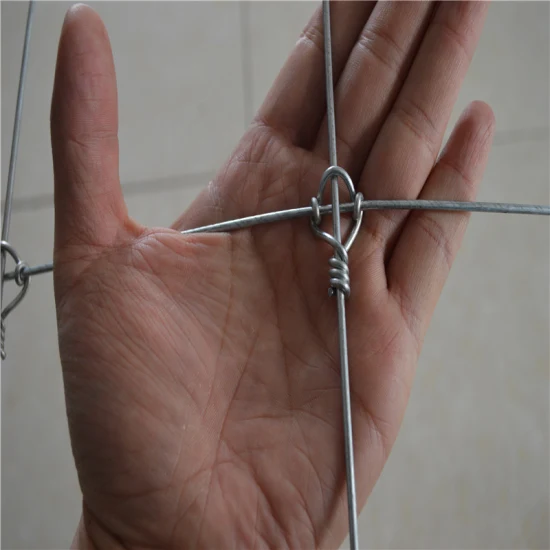
A key differentiator among manufacturers lies in their manufacturing consistency, specifically the precision of knot formation and mesh spacing, which directly influences the fence's structural integrity. Leading suppliers invest in advanced machinery and rigorous quality control at every stage of production. Furthermore, assessing their service tenure in the industry and reviewing testimonials or case studies from established clients can provide valuable insights into their experience and reliability. For instance, manufacturers specializing in B2B solutions for large agricultural enterprises or government projects often have a proven track record for delivering high-volume orders with strict specifications, such as a 6 ft fixed knot fence for large game preserves. It's advisable to seek out manufacturers who not only offer competitive pricing but also back their products with comprehensive warranties and responsive customer service, ensuring a partnership that prioritizes long-term value and mutual success.
Custom Solutions and Application Case Studies
While standard rolls of fixed knot fencing meet the requirements of many projects, specialized applications often necessitate custom solutions tailored to unique environmental challenges or specific animal containment needs. Professional manufacturers offer customization options for wire gauge combinations, mesh patterns, height variations, and even specialized coatings (e.g., PVC coating over galvanization for extreme corrosive environments or aesthetic requirements). This flexibility allows clients to specify a fence that precisely matches the behavior of specific livestock or wildlife, the contours of the terrain, and the long-term operational goals of their facility. For instance, a bespoke mesh might feature tighter spacing at the bottom to deter small predators, gradually widening towards the top for cost-efficiency without compromising the barrier integrity.
Consider a case study from a large deer farm in Australia, where the client required a perimeter solution capable of securely containing a diverse herd of exotic deer species while simultaneously deterring native wildlife from entering. Standard fencing proved insufficient due to the deer's jumping ability and the terrain's undulating nature. Our solution involved a custom-designed Australia Animals Deer Farm Field Wire Mesh Mesh Roll Farm Fixed Knot Fence, specifically tailored to 8-foot height (96 inches) with varied mesh spacing: tighter 6-inch horizontal spacing at the base for fawn containment and 12-inch spacing higher up. The high-tensile Class 3 galvanized wire ensured maximum longevity against Australia's harsh climatic conditions. The project involved 10 kilometers of fencing, installed with fewer posts than conventional methods, leading to a 25% reduction in installation costs and an estimated service life exceeding 40 years. This customized approach not only met the client's stringent containment and exclusion needs but also delivered substantial long-term economic benefits, demonstrating the adaptability and superior performance of bespoke fixed knot solutions in demanding agricultural environments.
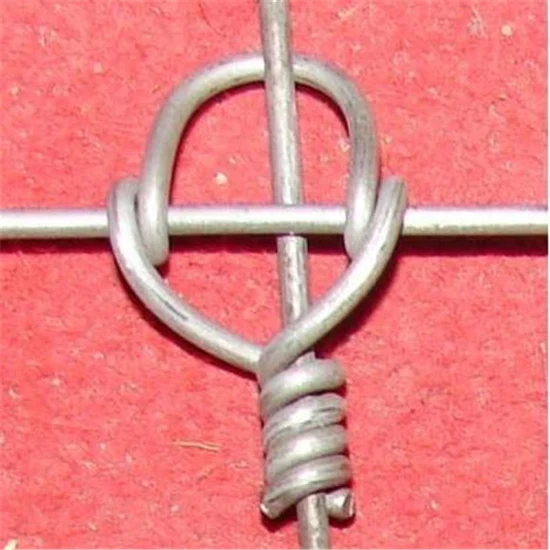
Ensuring Trust: Quality Assurance, Warranty, and Support
For B2B clients, trust is built upon a foundation of assured quality, reliable warranties, and robust customer support. A reputable provider of high tensile fixed knot wire fencing for cattle or other applications demonstrates this commitment through adherence to recognized international standards. Our manufacturing processes are ISO 9001 certified, ensuring consistent quality management from raw material sourcing to final product inspection. Every batch undergoes rigorous testing, including tensile strength tests, zinc coating adherence tests, and dimensional accuracy checks, to ensure compliance with specifications like ASTM A116 and AS/NZS 4534. These certifications and internal quality controls underscore our dedication to delivering products that not only meet but exceed industry expectations, providing clients with peace of mind regarding their investment.
Our commitment to client satisfaction extends beyond product delivery. We provide comprehensive warranty coverage, typically ranging from 20 to 30 years, against defects in materials and workmanship, including excessive corrosion under normal usage conditions. This warranty is a testament to the durability and expected longevity of our fixed knot fencing solutions. Furthermore, our dedicated customer support team offers expert guidance from the initial consultation phase through to installation and beyond. This includes assistance with product selection, technical specifications, and troubleshooting. We also provide clear information on delivery cycles, leveraging an optimized supply chain to ensure timely and efficient delivery for projects of any scale, minimizing downtime and supporting project timelines effectively. Our long-standing relationships with clients, built over years of reliable service and high-quality product delivery, stand as a testament to our unwavering commitment to trustworthiness and partnership.
Frequently Asked Questions (FAQ)
Q1: What makes fixed knot fence superior to other woven wire fencing types?
The superiority of fixed knot fence lies in its unique non-slip knot design, which tightly grips both horizontal and vertical wires, preventing slippage and maintaining consistent mesh spacing. This creates a much more rigid and impact-resistant structure compared to hinge-joint or woven wire fences. It resists stretching, sagging, and animal pressure more effectively, requiring fewer posts and leading to lower long-term maintenance costs and a significantly extended service life.
Q2: What is the typical service life of a high tensile fixed knot wire fence?
When properly installed and maintained, a high-quality fixed knot fencing with a Class 3 zinc coating can have a service life exceeding 30 to 40 years. The durability is attributed to the high-tensile steel wire and the heavy galvanization, which provide exceptional resistance to corrosion and environmental degradation.
Q3: Can fixed knot fence be used for deer exclusion?
Absolutely. Fixed knot deer fence is highly effective for deer exclusion. For this purpose, it's typically installed at heights of 6 ft (72 inches) or more, with closer mesh spacing at the bottom to deter smaller animals. The rigid structure and strong knots prevent deer from pushing through or damaging the fence, making it a reliable barrier for protecting crops, orchards, and gardens.
Q4: What are the installation requirements for fixed knot fencing?
Installation of fixed knot fencing requires sturdy end and corner posts, with line posts typically spaced further apart than for traditional fences due to the high-tensile nature of the wire. Proper tensioning is crucial for optimal performance, ensuring the fence remains taut and resilient. While professional installation is recommended, experienced DIYers can undertake it with appropriate tools and knowledge of high-tensile fencing techniques.
Q5: How does fixed knot fencing contribute to animal welfare?
The smooth, rigid surface and consistent mesh spacing of fixed knot fencing significantly reduce the risk of animals getting tangled, injured, or experiencing cuts, unlike barbed wire or loosely woven fences. This design promotes a safer environment for livestock, minimizing stress and potential veterinary costs, contributing positively to overall animal welfare standards on farms and ranches.
Authoritative References
- Rural Fencing Handbook: A Guide to Farm Fencing Practices. (Agricultural Extension Publication, University or Government Agricultural Department).
- High-Tensile Fence Systems: Design and Construction Guidelines. (Academic Journal of Agricultural Engineering or University Research Paper).
- ASTM International Standards for Metallic-Coated Steel Wire and Wire Products. (Industry Standard Body Publication, e.g., ASTM A116, ASTM A975).
- The Economics of Farm Fencing: Cost-Benefit Analysis of Different Types. (Agricultural Economics Journal or Research Institute Report).
- Wildlife Exclusion Fencing: Techniques and Materials for Effective Management. (Conservation Biology Journal or Wildlife Management Technical Report).
Latest News
-
Factory Supply 6063 Anodized Aluminum Grating Walkway Platform
NewsAug.21,2025
-
Hot Dip Galvanized Serrated I Bar Grating | 25x3, 25x5, 30x3 Mesh
NewsAug.19,2025
-
Hot Dipped Galvanized Barbed Wire Mesh Fencing (10-50kg)
NewsAug.18,2025
-
450mm Galvanized Concertina Razor Wire: BTO/CBT Types
NewsAug.17,2025
-
Aluminium Corner Bead: Durable Tile & Plaster Edge Protection
NewsAug.16,2025
-
Durable PVC Coated Wire Mesh Rolls for Fencing
NewsAug.15,2025
Our company owns has excellent CAD steel grating drawing designers, who can provide customers with perfect steel grating layout design and better meet customers' special requirements for products. We have been adhering to it the business tenet of "quality first, customer first", with high-quality products, reasonable prices, and the fastest delivery time, we wholeheartedly provide customers with a full range of services! Welcome new and old customers to cooperate sincerely and create brilliance together!
Contact Us
WELCOME TO OUR COMPANY!
Thank you for your interest in our services! If you have any questions or wousld like to book a service, please don’t hesitate to contact us. Our team is dedicated to providing you with the highest level of service and support, and we are committed to working with you to make your event a success.

Service Email

Service Phone
Product Center
Contact Us
- Phone: +86 +86 15733154345
- E-mail: sales@chengsenchina.com
- Address: B1213 GLOBAL CENTER, NO.226 ZHONGHUA NORTH STREET, SHIJIAHUANG, CHINA


